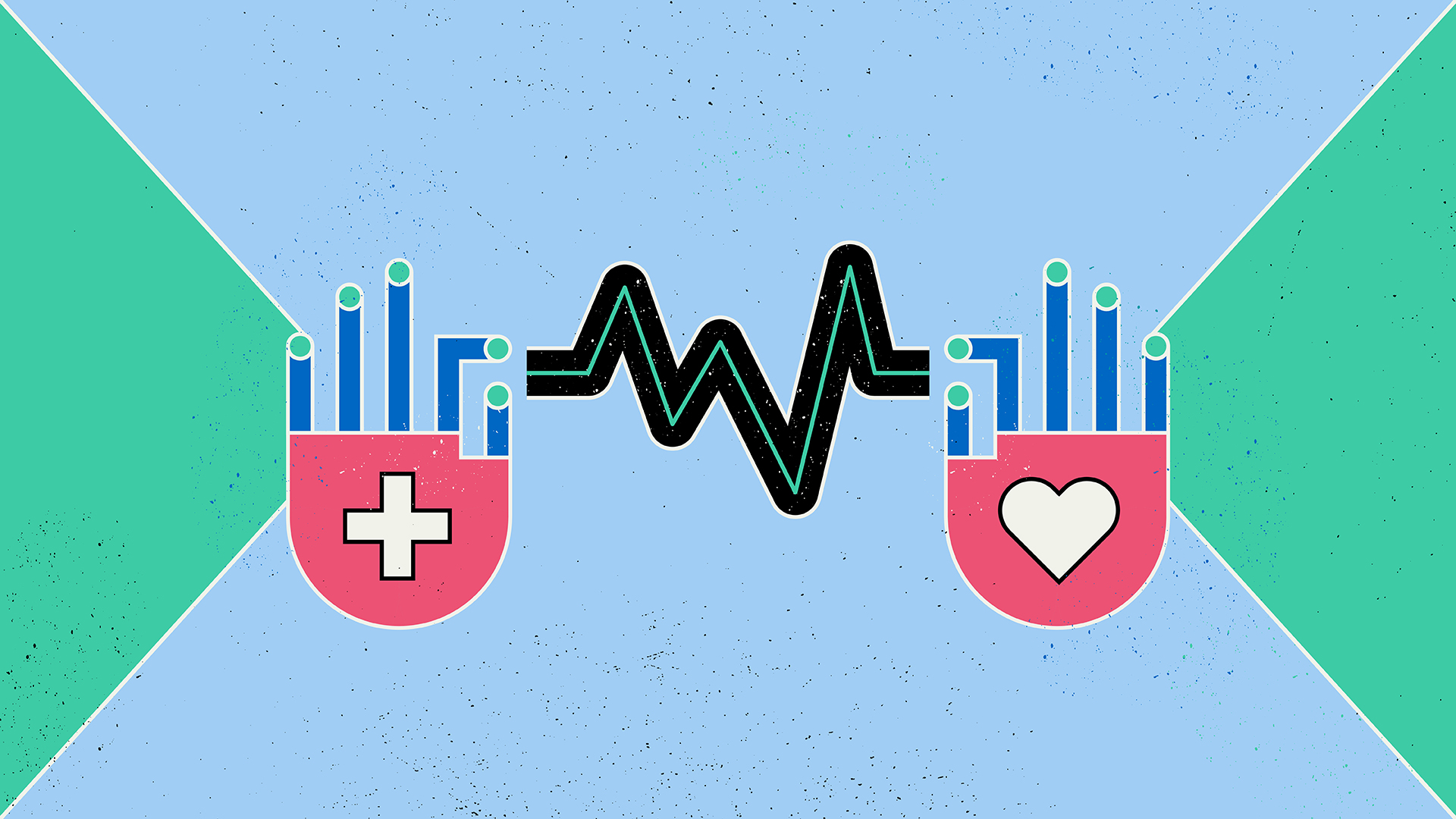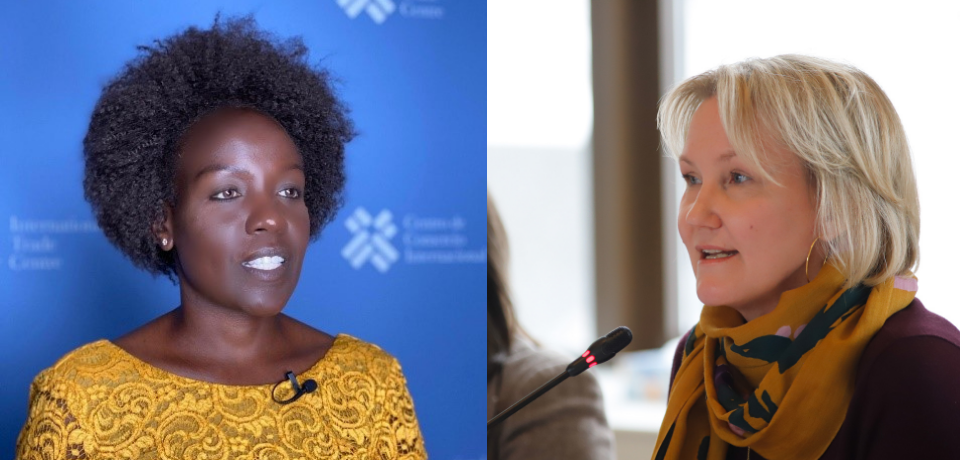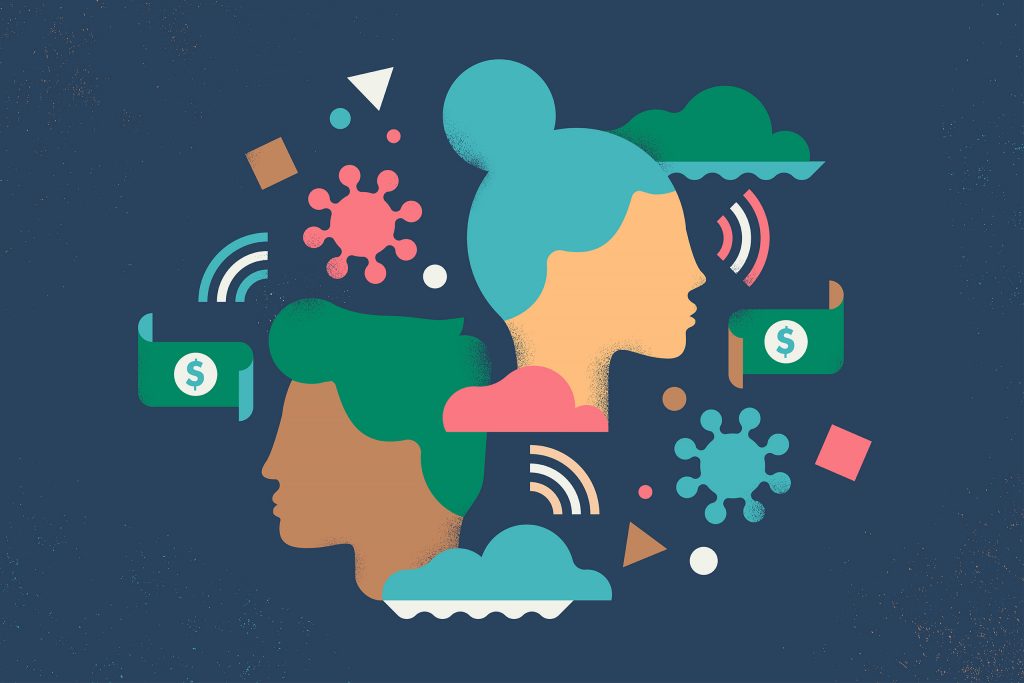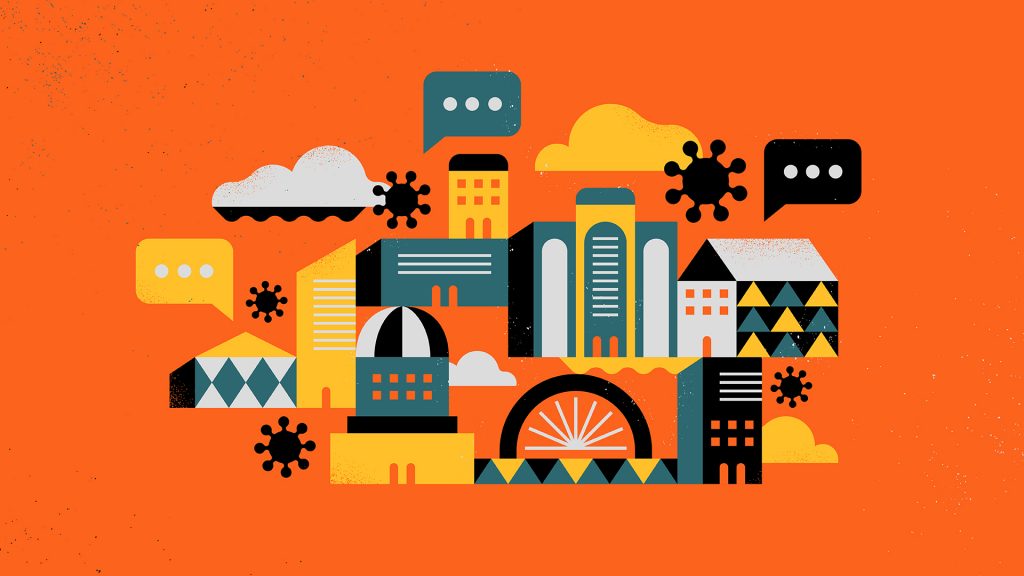Author: Dr. Aleem Bharwani
BiographyDr. Aleem Bharwani
Dr. Aleem Bharwani is the Director of Public Policy and Strategic Partnerships (Cumming School of Medicine), the Lead for Public Policy (O’Brien Institute for Public Health), and the Vice-Chair of the Department of Medicine (University of Calgary). He is a specialist in internal medicine with graduate training in public policy from the Harvard Kennedy School.
In addition to annually winning teaching awards, he has been recognized for his education and policy leadership by two international societies (American College of Physicians and Society of General Internal Medicine), by the Royal College of Physicians and Surgeons of Canada, and the UCalgary O’Brien Institute for Public Health. He has also been previously named to Calgary’s Top 40 Under 40. Follow him on Twitter @AleemBharwani

Illustration by Brandon Serbec
Dr. Bharwani is the Director of Public Policy and Strategic Partnerships (Cumming School of Medicine), the Lead for Public Policy (O’Brien Institute for Public Health), and the Vice-Chair of the Department of Medicine (University of Calgary).
Our fates are intertwined
Citizens around the globe have rallied together during this pandemic. We have rallied before, especially in the wake of earthquakes, floods, and tsunamis. We did so because we recognised that natural disasters strike more by luck than by choice. If you have ever cleaned a yard after a disaster, if you have given to a food bank, or if you have donated knowledge, money, or time to a relief organization, you know what it means to help people suffering from conditions that they did not create. You recognize our intertwined fate as people and you understand what it is to be an active citizen in the global community.
Active and inclusive citizenship during the pandemic has looked a little different. We have seen people come together to donate and support others, but we have also seen citizens take more active roles in public health. COVID-19 has demonstrated that every citizen is capable of saving lives through simple, everyday actions. You learned from experts and acquired knowledge about the virus, the body and public health. You weighed the risks and benefits of different actions, then executed on the best treatment plan. Ultimately, you recognized that infection anywhere can lead to infection everywhere, and you acted in ways that saved lives, by staying home and flattening the curve. The moment you realized you were a community of patients; you also became a community of doctors.
As a community of doctors, we must also distinguish chance from a rigged deck. The birth of a novel virus, the slip of a tectonic plate, or a sudden increase in rainfall are a game of chance. The factors that predispose some to suffer disproportionately from these crises arise as a direct result of our collective priorities. Every day we make implicit and explicit choices about who we include and exclude socially, politically, and economically; each of these decisions has very real consequences.
We see these consequences in our communities’ health disparities, which often fall along lines of age, income, ethnicity and newcomer status. In Ontario, Canada, communities with larger proportions of immigrants, visible minorities and lower incomes have been harder hit by COVID. The death rate in some long-term care facilities has been as high as 32% of total residents, and across Canada, 79% of total COVID cases have been linked to long-term care facilities. In parts of the United States, Black citizens are dying of COVID at twice the rate of their fellow citizens.
Inclusive citizenship requires us to recognize our collective, intertwined fates. Whether we are in or out of crisis mode, we must act in ways that fracture these axes of exclusion.
Reducing risk factors for disease is a community act – not an individual one
We do not control the socio-economic conditions we are born into. We also do not control our genes, or our exposure to famines, pandemics, or flus. Yet these ‘non-modifiable risk factors’ affect chronic disease risks as an adult. The things we experience as children take a toll on our adult blood vessels.
Studies done on the Dutch Famine and the 1918 Influenza Pandemic show that babies born during times of stress are more likely to develop adult onset vascular disease, heart disease, and obesity. The foetus senses it is being born into a tough environment. It shifts into thrifty mode to store nutrition and stockpile calories for what it expects will be a scarce or rocky life ahead. Long after you are born, you feel the effects from what you and your mother experienced while you were in the womb.
As a child, if you are subjected to physical, sexual, or emotional abuse, or to malnutrition, you feel stress and your adrenaline and cortisol levels rise. This toxic stress does not stop in childhood; you will carry it with you for your entire life.
Adults today who are more vulnerable to disease are not in full control of the factors that put them at increased risk. However, compassionate interventions by communities can improve health outcomes of children who were exposed to toxic stress. Many of the ‘non-modifiable risk factors’, such as personal or family history, are, in fact, modifiable by the community, rather than the individual. We cannot go back in time and change the things that a patient experienced and was exposed to, but as a community, we can change a child’s future if citizens continue to think and act like doctors.
Compassion is simple, affordable and scalable care
Compassion can be protective, and a simpler, more affordable treatment than any drug or medical device. Compassion is scalable by citizens working together. With a community of citizens who see themselves as doctors, preventive medicine becomes helping your neighbour, smiling at someone on the bus, and volunteering for community initiatives. It also requires us to ask caring questions, to understand why some people’s paths are rockier than others and seek solutions to even out the path. These seemingly small actions can improve the health of citizens for decades to come. You are making the lives of children and parents better today and reducing health costs for the next generation.
COVID-19 has demonstrated the necessity for all of us to become a community of doctors. Committing to the wellbeing of others is an act of inclusive citizenship. Not limited to moments of crisis, acts of compassion prevent disease and build our collective resilience.
In this way, we are all doctors.




